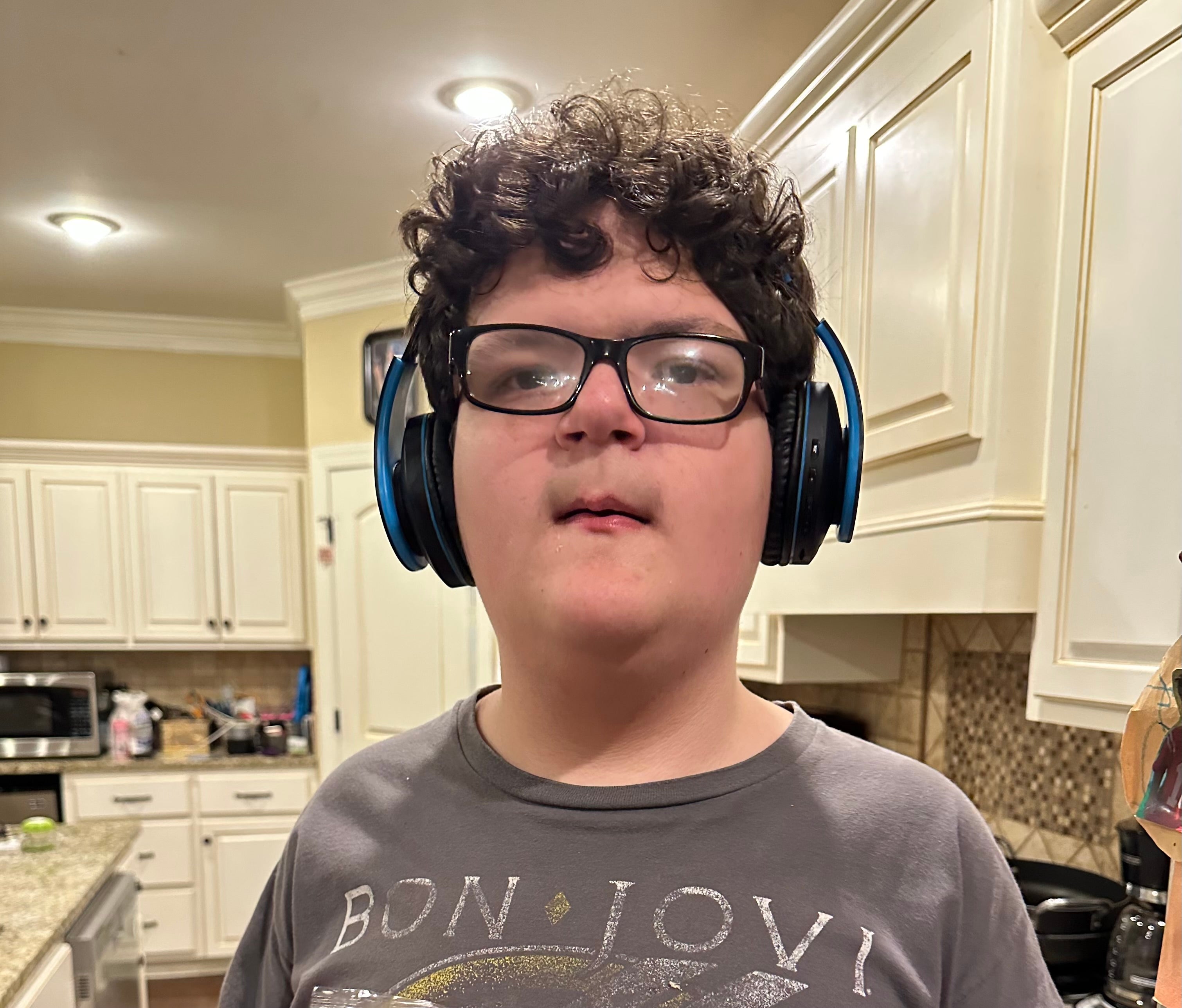The More We Know
Published 12:00 pm Wednesday, April 19, 2023

- Barrett Pinion, a non-verbal autistic teen, is warm and bright. His condition sometimes causes him to be misunderstood, his mother says.
Oxford family believes National Autism Awareness Month helps the community understand the condition and helps parents with new diagnosis.
By Angela Cutrer
People with autism – and the people who love them – hope that the month of April brings about deeper understanding and acceptance of those who live with the condition.
The National Autism Awareness Month began in 1972 when a group called the Autism Society founded the event “to increase awareness, advocate awareness, and spark change in schools, communities, medical facilities and businesses.”
Now, 51 years later, a greater understanding of autism is more likely thanks to research and greater public education.
Melanie and Freddie Pinion are business owners in Oxford. They are parents to a set of twins, Bailey and Barrett, who turn 14 in May.
Bailey, the younger by 13 minutes, is the average teen experiencing life. She is close to her brother, who is autistic, and they attend school in Oxford. “They have a good relationship,” their mother said. “She is his favorite person.”
Barrett attends school two days a week and therapy sessions the other three. Though nonverbal, Barrett can communicate with an AAC, defined by American Speech-Language-Hearing Association as an “Augmentative and Alternative Communication” device.
Augmentative refers to the addition to someone’s speech, while alternative means to be used instead of speech. Barrett uses the latter, which is about the size of an iPad.
“He’s a mostly happy child,” Melanie said. “He’s a special, special kid and he’s so bright. I wish more people would take the time needed to get to know him.”
She said her son looks older than his years, which causes some people in public to wonder why he behaves certain ways. “He doesn’t speak, but he hums and we know all his hums,” Melanie said laughing. “He comprehends everything you say and uses the AAC to respond.
“Sometimes we get those stares and hear those murmurs, but we are used to it by now. He looks normal and yet he’s nonverbal, but none of it bothers him. He just goes on his way and he’s fine.”
Doctors have never said why Barrett does not speak, and the Pinion family knows they may never know the reason. All they really want is for people to be patient with Barrett and understand that this is his permanent reality.
Melanie said she hopes this April people will learn more about how they can understand, accept and be aware of people with autism. “I think having this month dedicated to autism has really helped, in all honesty,” she said. “People seem more aware.
“I’ve been using my Facebook to share memes and information and so on, and it’s gotten a huge response. People would say they had no idea about this or that and now they know. I think that’s really good because a lot of people just don’t know. I always say to come and ask and we’ll be glad to tell you about our experience.”
Melanie said that any autistic parent out there would probably say the same thing – that it’s hard for some people to understand an autistic child’s behavior and it’s just as hard for those families to deal with the stares and comments.
“Barrett looks ‘normal,’” she said gently. “And you would think with the size of Oxford and having Ole Miss and everything, there would be more opportunities for people with autism.”
“Maybe there will be one day. We used to have to drive Barrett all the way to Tupelo for his therapy, so we are glad that we can get that at home now.”
As changes go, National Autism Awareness Month has now changed to “Autism Acceptance Month,” as supporters aim “to celebrate and promote acceptance for the condition that occurs in one in every 54 children … in the United States.”
The Autism Society says “with the autism diagnosis rate increasing fast, we take these 30 days to celebrate the differences of, learn more about and empower autistic individuals.”
The World Health Organization reports one in every 270 people in the world has Autism Spectrum Disorder (ASD), “a group of developmental disabilities that causes social, communication and behavioral challenges.”
Autism itself is a “complex brain disorder that often inhibits a person’s ability to communicate, respond to surroundings and form relationships with others.” Children with ASD are usually nonverbal or have restricted or repetitive behaviors, the WHO said.
Since ASD affects people of all racial, ethnic and socioeconomic backgrounds, the National Autism Awareness Month in April was geared toward raising awareness for everyone when it comes to autism and Asperger’s syndrome.
Autism is unique, even though the autism experience is defined by a certain set of behaviors. This “spectrum condition” affects each individual differently and to varying degrees.
There is no cure for autism, but early intervention is the most opportunistic time for a child with autism to receive the help necessary to live a fulfilled life.
For more information on autism, visit www.autismspeaks.org and https://autismsociety.org.





